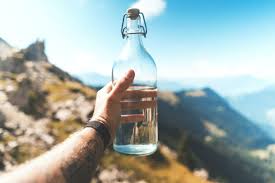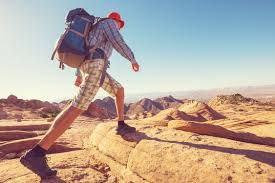Arizona’s summer landscapes are stunning—from cactus-covered hills to shady pine forests up north—but hiking in the heat requires extra caution. With temperatures easily climbing past 100°F, a little planning goes a long way in keeping your adventure safe and enjoyable.
First and foremost: time your hike wisely. Early mornings and late evenings offer cooler temps and softer light. Avoid mid-day hours when the sun is at its peak. Even shaded trails can feel intense after 10 a.m.
 Water is your best friend, but hydration alone isn’t enough. In the dry desert air, you lose electrolytes—like sodium, potassium, and magnesium—through sweat. Replenish them with electrolyte tablets, sports drinks, or salty snacks. Symptoms like headaches, muscle cramps, and dizziness can be early signs of imbalance or dehydration.
Water is your best friend, but hydration alone isn’t enough. In the dry desert air, you lose electrolytes—like sodium, potassium, and magnesium—through sweat. Replenish them with electrolyte tablets, sports drinks, or salty snacks. Symptoms like headaches, muscle cramps, and dizziness can be early signs of imbalance or dehydration.
Dress for protection and comfort: lightweight, moisture-wicking fabrics, a wide-brimmed hat, and breathable trail shoes. Don’t forget reef-safe sunscreen and sunglasses—Arizona’s UV index is no joke. And always carry more water than you think you’ll need.
 Know your trail before you go. Apps like AllTrails can help you check elevation gain, shade levels, and recent reviews. Let someone know your route and expected return time, especially if you’re venturing into more remote areas.
Know your trail before you go. Apps like AllTrails can help you check elevation gain, shade levels, and recent reviews. Let someone know your route and expected return time, especially if you’re venturing into more remote areas.
Finally, listen to your body. Rest in the shade when needed, turn back early if conditions feel risky, and never push through signs of heat stress. The desert rewards the prepared.
Whether you're hiking Camelback, the Superstitions, or a cool northern trail, safety should always be your first summit. Enjoy the beauty—but hike smart.
Works Cited:
“Arizona Hiking Safety.” Arizona State Parks & Trails, https://azstateparks.com/hiking-safety. Accessed 1 June 2025.
“Desert Hiking Safety.” National Park Service, U.S. Department of the Interior, https://www.nps.gov/articles/desert-hiking-safety.htm. Accessed 1 June 2025.
“Electrolytes: The Spark of Life.” Cleveland Clinic, https://my.clevelandclinic.org/health/articles/15472-electrolytes. Accessed 1 June 2025.
“Heat-Related Illnesses.” Centers for Disease Control and Prevention (CDC), https://www.cdc.gov/disasters/extremeheat/heattips.html. Accessed 1 June 2025.
“How Much Water Do You Need When Hiking?” REI Co-op Expert Advice, https://www.rei.com/learn/expert-advice/hydration.html. Accessed 1 June 2025.



